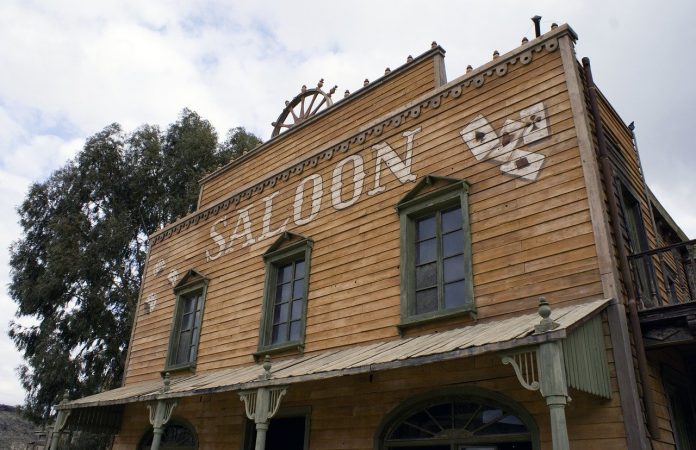It’s hard not to consider gambling a large part of human history. It seems that it has been with us the whole time. It’s such a captivating and even addicting concept that no wonder we’ve invented it. The adrenaline rush gambling gives isn’t comparable to anything. As far as excitement and entertainment go, humans have gone above and beyond to provide themselves with fun activities. From first primitive games up to the best online casinos, here’s the history of gambling.
The first evidence of gambling dates back to 2300 BC to ancient China.
First Manifestations of Gambling
Archeologists found evidence of tiles that had the resemblance of a game of chance dating 2300 BC. To tell the truth, dice have been found in Egyptian tombs 700 years older than that, but it isn’t clear if they were used for gambling. There are also written descriptions of games such as “the drawing of wood,” or, as we would call it today, drawing straws. Relatively prominent when it comes to gambling, China is the country where keno originated in 200 BC. It seems that they organised state-managed lotteries to make money for large investments, too, which is an example of one of the earliest legalised gambling systems.
Ancient Rome and Dice
There’s evidence in Sophocles’ works that dice were, in fact, played in Rome as early as 500 BC. But it wasn’t your regular gambling. Greeks and Romans used to gamble almost religiously and would put bets on all kinds of things. It was actually forbidden to gamble in ancient Rome, so the citizens came upon the idea to switch money for chips when playing. That way, if any of them got caught, they could just tell the guards they weren’t playing for money.
First Playing Cards
Again, we’re back in China, to the 9th century AD, as it’s where the playing cards originate. Researchers seem to agree that it’s the first version of the modern playing cards, although they bear little to no resemblance to what we have now. They have virtually no connection to the European 13th and 14th-century cards and may not have even had any impact at all. The first deck that resembles our modern playing cards originated in Italy in the early 13th century.
At the time, decks of cards were very luxurious items owned only by the noble families, as they were hand-painted with great attention to detail. Later on, as cards got more popular, different production methods emerged, so they were cheaper. With army marches across Europe, the 52-playing card deck was spreading quickly and soon got very popular. Each country had its own version of cards, as they wanted to be original. Still, the general idea stayed the same.
Baccarat and Blackjack
You can’t have a deck of playing cards but no games to play it with. One of the earliest card games is baccarat. It dates back to the 1400s, to the time when the playing cards got to France. Even though its first form is fairly different from the modern version, it’s still a popular game in today’s casinos.
As for blackjack, it has first originated in France in the 1600s under the name Vingt-et-Un, meaning twenty-one. Because of some French colonists arriving in America, blackjack found its way across the pond. The name came from the ten-to-one odds you could win if you got a blackjack with a jack of a black color along with an ace of spades. Now, blackjack is one of the most prominent games, and no casino leaves it out of its offer.
First Gambling Houses
The first established, state-governed, legalised casino came to be in Italy in 1638. Called the Il Ridotto or The Private Room, it was situated in a separate wing of a palace in Venice. During the next two centuries, there has been a significant boom of casinos in Europe.
As the trend got to America at the beginning of the 20th century, Las Vegas was born as the capital of gambling. In fact, it got so popular that Vegas became synonymous with all kinds of wicked behaviour such as drinking, gambling, and prostitution. Soon, the state changed the laws and delegalised gambling altogether, but an underground was steadily growing. As soon as it got legalised again, twenty years later, it became apparent that an extensive gambling network was already operating.
Roulette
Roulette emerged at the end of the 18th century in Paris, France. It didn’t change that much when compared to modern-times roulette. The thing is, though, the first version of the game is now called American roulette, whereas European roulette differs in that it has only one green zero. That happened because America quickly adopted the first version of the game, and the European kind got spread across the old continent later — in the 18th century. Nowadays, live roulette online is the most popular.
Poker
We don’t really know the exact time poker was invented. The first records of the game date back to 1829, to New Orleans. Poker wasn’t prevalent at all during these times, and it took more than a hundred years for it to get the recognition it deserved. In 1970, Las Vegas started hosting poker tournaments, increasing its popularity.
But it wasn’t until the late 1990s and early 2000s when poker really got traction. It’s because of the online variation of the game and the rising internet usage. Poker organisations started to host online tournaments with significant prizes.
Slots
The first version of slots was created in 1891 in New York. It was in the form of a one-armed bandit machine. It was relatively primitive, although it was the first machine of this sort. In fact, at first, you couldn’t win money playing one-armed bandits. The earliest devices gave cigars and gums as the winnings.
Online Gambling
In 1994, we witnessed the first gambling software developed by Microgaming. Soon enough, it became a global hit, as safe online payment methods came to be. From then, it’s been steadily growing. Now, it’s a multi-billion dollar industry, and its expansion has been further increased due to the global pandemic. As people choose to stay home, they look for different ways to spend their time, hence increasing online gambling interest. Now you can play live roulette, blackjack, poker, and other games without the need of ever going out.
Find a Home-Based Business to Start-Up >>> Hundreds of Business Listings.
















































